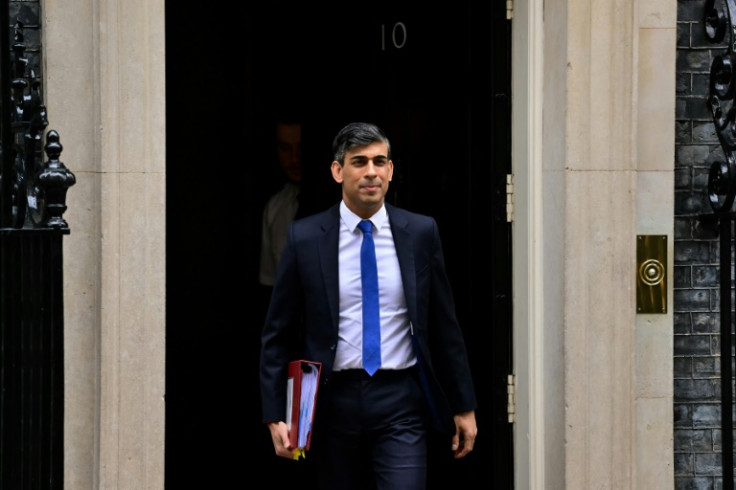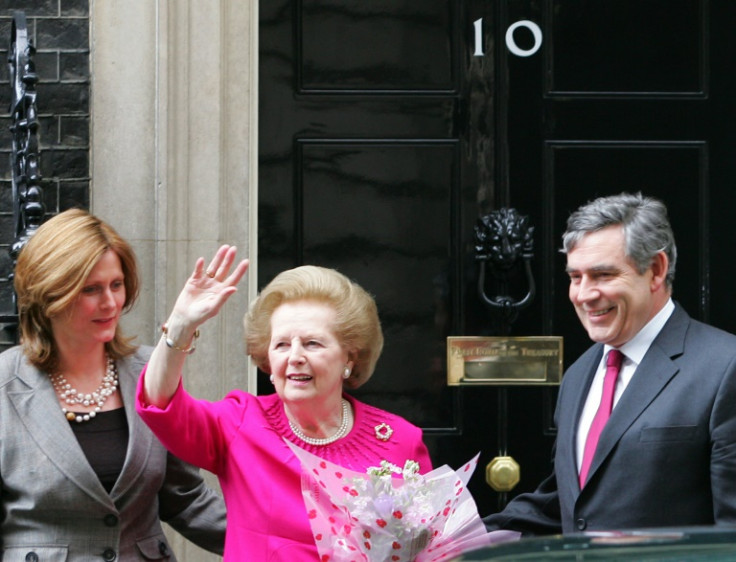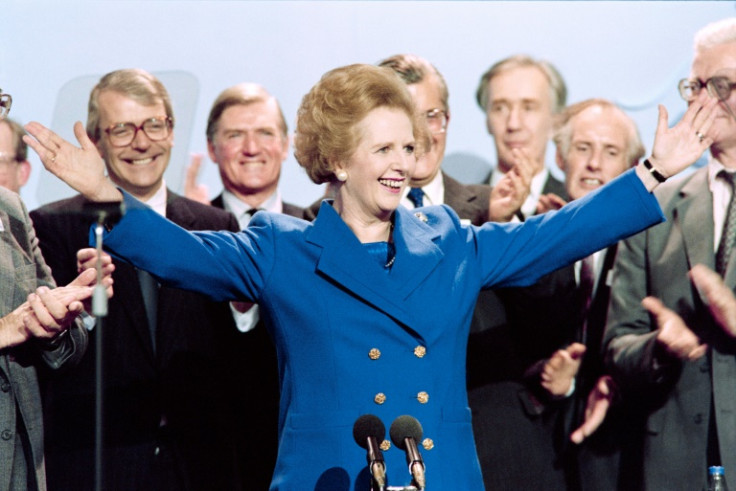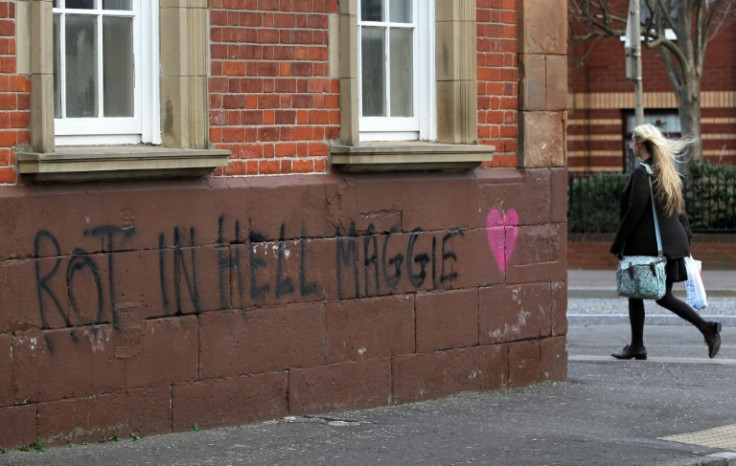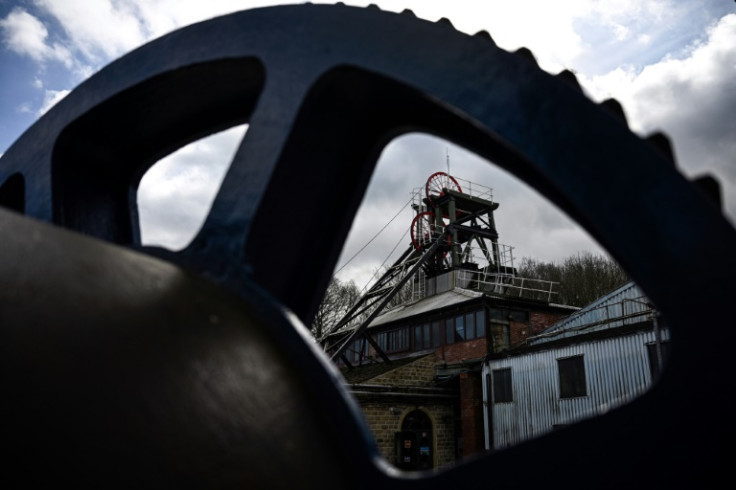
Margaret Thatcher remains despised by many on the left of British politics, but the main Labour opposition seems comfortable citing her as it woos the right before this year's election.
Labour leader Keir Starmer and senior colleagues have recently referenced the Conservative icon, highlighting the party's shift to the centre since Starmer succeeded left-winger Jeremy Corbyn.
In December, Starmer described Thatcher as effecting "meaningful change" in the UK during her controversial 1979-1990 premiership while foreign affairs spokesman David Lammy this week called her "a visionary leader".
Such comments would have been unthinkable under Corbyn.
He also cited Thatcher in the 2019 general election but said her government "waged a war against working class communities in the 1980s" and warned that "Boris Johnson's Tories are more of the same."
Corbyn lost by a landslide to Johnson and then quit as Labour leader.
Citing Thatcher is "a good way to signal that you are a completely changed party," Sophie Stowers, a British politics researcher at the UK in a Changing Europe think-tank, told AFP.
The approach is also reminiscent of former prime minister Tony Blair's "New Labour" party of the 1990s and 2000s which embraced some Thatcherite policies.
His successor Gordon Brown even welcomed her to Downing Street.
"It shows a Labour party that is a lot more pragmatic than ideological," noted Stowers.
Labour enjoys double-digit leads over the Conservatives in opinion polls as the UK waits for current Prime Minister Rishi Sunak to announce the date of the election, likely in the second half of the year.
The centre-left outfit is pitching itself as friendly towards business and as responsible stewards of the economy -- historically not always seen by voters as the party's strengths.
It is also drawing parallels between today's Britain and the one Thatcher -- who died in 2013 -- took over when she became the UK's first woman prime minister in May 1979.
Then, Britain had just endured the "Winter of Discontent" when widespread industrial action calling for pay rises amid steep inflation resulted in rubbish piled high on streets and bodies left unburied in graveyards.
Today, Britons are feeling the pinch of a cost-of-living crisis sparked by high energy prices and inflation, stifling economic growth and triggering widespread strikes.
Harsher critics say the effect of Tory austerity policies going back to 2010 are still being felt.
Labour's finance spokeswoman Rachel Reeves said this week that the UK stood "at an inflection point" like it did "at the end of the 1970s," which paved the way for Thatcher's radical free-market economic reforms.
Starmer, 61, wrote in the right-wing Sunday Telegraph last year that Thatcher had "sought to drag Britain out of its stupor by setting loose our natural entrepreneurialism".
The "Iron Lady" remains beloved by the right for privatising state-owned companies, reducing the influence of trade unions and deregulating Britain's financial markets.
She is disliked in equal measure by the left for her perceived callous disregard for working-class communities as she closed down swathes of heavy industry, particularly mines.
Experts consider Labour's recent remarks about her to be nuanced, given the strength of feeling she still provokes.
Reeves did not mention Thatcher specifically while Starmer's article cited her alongside Blair and Clement Atlee, Labour prime minister from 1945-51.
Starmer later clarified that he was only stressing Thatcher's "sense of purpose" and did not agree with her.
Lammy caveated his remarks to Politico by adding that "you can take issue with Mrs Thatcher's prescription".
"You will struggle to find something that looks like an endorsement or big praise for Margaret Thatcher's legacy. They are very careful with their language", Karl Pike, politics expert at Queen Mary University of London, told AFP.
Nevertheless, left-wingers were angered. Campaign group Momentum, which backed Corbyn, said the current Labour leadership was "out of touch with the Labour movement and Labour values".
"We want to overturn Thatcher's disastrous settlement, not recreate it," it said of Reeves's speech.
Richard Leonard, the former leader of Scottish Labour, added: "No rewriting of history. Thatcher didn't renew the economy, she broke it."
The comments have also given the pro-independence Scottish National Party an attack line as it tries to remain the largest party in Scotland, where Thatcher remains deeply unpopular.
The SNP leader in the UK parliament, Stephen Flynn, mocked the Labour frontbench as "born-again Thatcherites" this week.
Stowers said Labour's approach risks alienating some voters but it is one the polls suggest they can afford to take.
"They've got quite a lot of leg room," she added.
